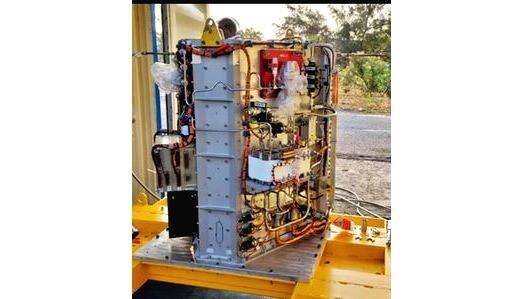

THIRUVANANTHAPURAM: ISRO has achieved a groundbreaking feat by generating electricity in space through fuel cell technology. Previously accomplished only by NASA, this achievement marks a significant stride for India's space station and future human space missions.
Under the leadership of VSSC Director S. Unnikrishnan Nair, a team of scientists has successfully developed a polymer electrolyte membrane fuel cell. This fuel cell fueled by hydrogen and oxygen gases powered the Fuel Cell Power System (FCPS) aboard the PSLV-launched 'XPoSat' in a 350 km orbit.
In an unprecedented move, the FCPS produced 180 watts of electricity using electrochemical action without combustion, a development independently done for electrodes (anode and cathode) after NASA. This success comes amidst research by the European Space Agency and the Japanese Space Center over the past two years.
The benefits of this achievement are manifold. It promises continuous electricity, water and heat for prolonged periods for space stations and human missions. Moreover, it can serve as a reserve in space probes and ensures electricity even without sunlight. Additionally, it opens avenues for various fuel considerations and finds potential application in electric vehicles.
The fuel cell operates through the reaction of hydrogen and oxygen gases, generating electricity while producing water as a by-product. This water can be converted back into electricity through chemical and electrical reactions, enabling a continuous cyclic generation of electricity for up to three years, unlike traditional batteries that require recharging.
This breakthrough capable of supplying the 20 kilowatts of electricity per day needed by space stations, holds immense promise for the future of space missions and sustainable energy solutions.